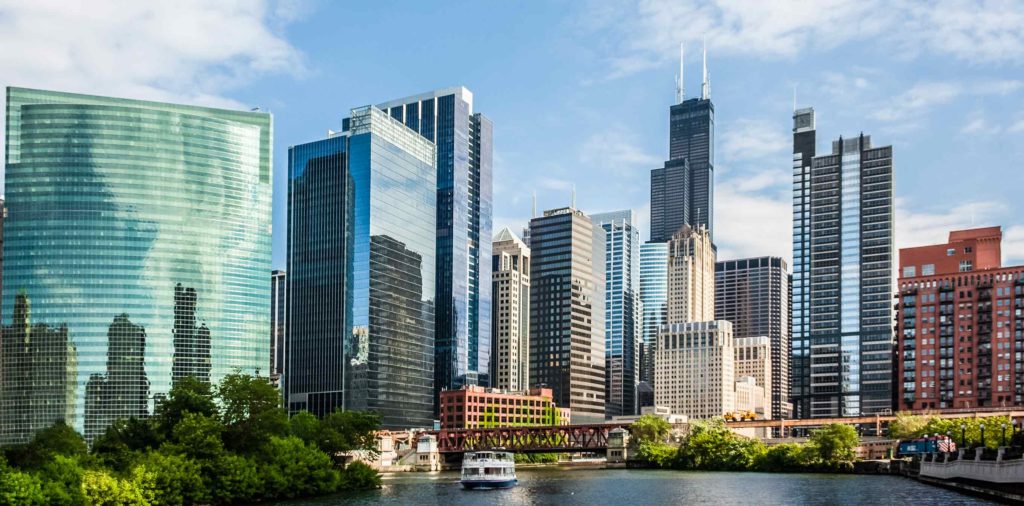The City of Chicago has had an up-and-down start to recycling in the last 10 years. In 2008, the failing “blue bag” program – where residents were to separate recyclable material into identified blue bags for removal – was rejuvenated and replaced by a blue cart program. Then, in 2017, the local government went a step further, introducing laws designed to ensure big building owners provide adequate recycling services for tenants and other stakeholders.
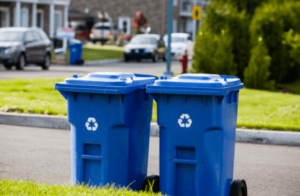
Source: chicago.gov
These measures were a step in the right direction, however, with diversion rates as low as 8% for residential waste, it’s clear that Chicago is still struggling to improve recycling efforts.
But what exactly is the challenge for Chicago recycling? And why, with similar issues facing most large cities in the US, is it lagging so far behind in its efforts to improve recycling and reduce landfill rates? We take a closer look at how, despite the best efforts of tenants and stakeholders, large multifamily buildings are still contributing to the city’s low diversion rates.
Chicago’s landfill diversion lags behind the national average
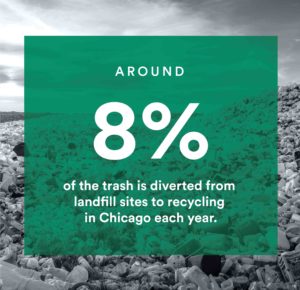
Currently, Chicago diverts around 8% of the trash produced each year from landfill sites to recycling.
In comparison, New York diverts around 17% and Los Angeles an impressive 76.4%. For LA specifically, these high numbers can largely be attributed to the strict rules set out and regularly enforced by the Californian government.
To put these figures into context, the national average is around 35%, meaning Chicago’s existing efforts to divert waste away from landfill are considerably low. So, where exactly is the recycling chain breaking down, and what’s happening to all of those recyclables?
Chicago recycling – The state of play
To date, the focus of enforcement for Streets and Sanitation has been on single-family homes and buildings with fewer than four units through the residential blue cart recycling program. As of 2013, this accounted for 72,000 residents living in single-family homes, two-, three- and four-flat residences.
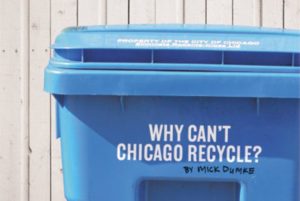
Source: chicagoreader
However, around 40% of the city’s population lives in properties with five or more residences, and while owners of these buildings are required by law to provide recycling services to tenants, the city itself is failing to enforce its own legislation, meaning huge amounts of recyclables are simply being sent to landfill.
The ordinance in question also accounts for some 60,000 businesses and other commercial units, with mandatory sorting and collection of recyclables to be organized by owners or facility managers.
At that time, the DSS stated:
“The Chicago Department of Streets and Sanitation (DSS) will handle enforcement of the ordinance that includes a 30-day warning period and graduated penalties for non-compliance.”
Going on to say:
“The Department looks forward to working together with building owners to help educate them on these changes.”
According to recent reporting, neither of these promises has come to fruition, and currently, the city is failing repeatedly to both monitor and enforce recycling in larger buildings and businesses. Perhaps even more concerning is the fact that a worrying trend is developing, with the DSS laying the onus on citizens to highlight the failures of building owners towards their recycling commitments—and even then, there’s evidence to suggest that little or no action is being taken to monitor or enforce these infractions.
A failure of enforcement on both buildings and haulers
All larger buildings and businesses are directed to choose one of 15 licensed waste disposal firms in the city to collect and distribute recyclables to materials recovery facilities (MRF) and recycling facilities.
Each of these companies is required to submit an annual report detailing the buildings they serve and what materials have been diverted from landfill. The concept being that a comprehensive data set would help Chicago measure and monitor landfill diversion rates in a similar way to California and New York.
According to a report by Inspector General, Joseph Ferguson, Streets and Sanitation did not enforce this law when reports were filed late or never at all. Only 6 of the 15 firms submitted their reports on time, with a further 3 filing late, for a total of 9 out of 15 fulfilling their obligations.
It also turns out that none of the reports were assessed by city officials for accuracy, so the city has no reliable information about the diversion rates for recyclable waste and no way to set clear and realistic goals for the future.
So, a tenant or business who makes the effort to recycle can be let down by non-compliant building managers, waste haulers not fulfilling their legal requirements, and by city enforcement. Combined, these factors have led to Chicago’s good recycling intentions unraveling overtime.
Mitigating factors in Chicago’s recycling enforcement
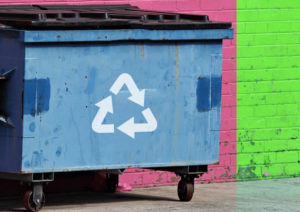
Source: polkmn
In 2011, the Department of Environment was divided into a number of smaller entities, making effective communication and collaboration difficult. It also removed necessary funding and the ability to develop and enforce policy, with each department responsible for increasingly smaller subsections of the city and its waste management.
Today, calls for the Department of Environment to be reinstated and take charge of these repeated failures are growing, and a re-consolidation of an overarching entity may well be the solution the city needs in order to monitor and enforce the 2017 ordinance.
However, even in the few short years since the ordinance was introduced, the recycling landscape has changed significantly, most notably with the introduction of China’s National Sword policy. Today, China is no longer willing to accept much of the US’s single-stream recyclables, raising the bar for waste contamination to levels that essentially render the export of US waste, including Chicago’s, uneconomical.
The future of recycling in Chicago and Illinois
It’s not all bad news. The existing $12 million deal for waste collection, signed in 2011, is to be replaced in early 2021. The new three-year contract will include penalties for any contractors who miss pick-ups—one of the most common complaints of residents in multifamily buildings.
It’s also hoped any new deal will pick up on the recommendations of the Inspector General. These included a change to the city’s ticketing system to allow Streets and Sanitation to fine those caught violating the recycling rules. In addition, waste haulers should be legally obliged to provide detailed reports and provisions for Chicago recycling to enforce this with appropriate support. It’s only with measures like these Chicago can realize its good intentions moving forward—helping the city to lose its unenviable label as one of the worst cities for recycling.
For more information on efficient and reliable waste collection, RTS can help. With on-demand trash collection, recurring waste services, and sustainability programs in place, our innovative approach to waste management is based on sustainability and we are committed to helping Chicago meet and exceed its recycling goals.

